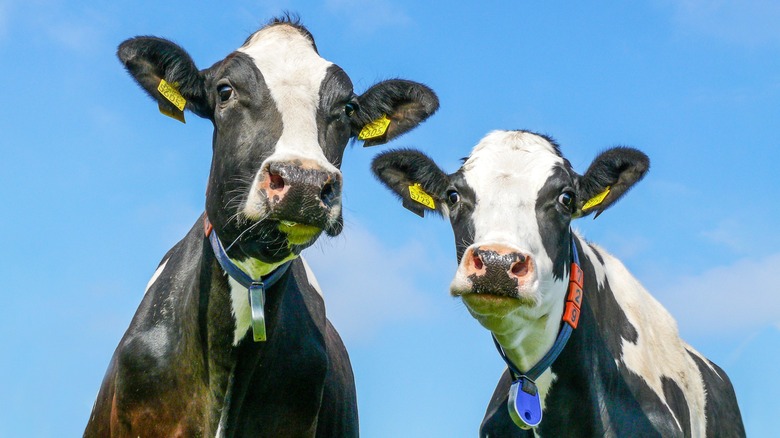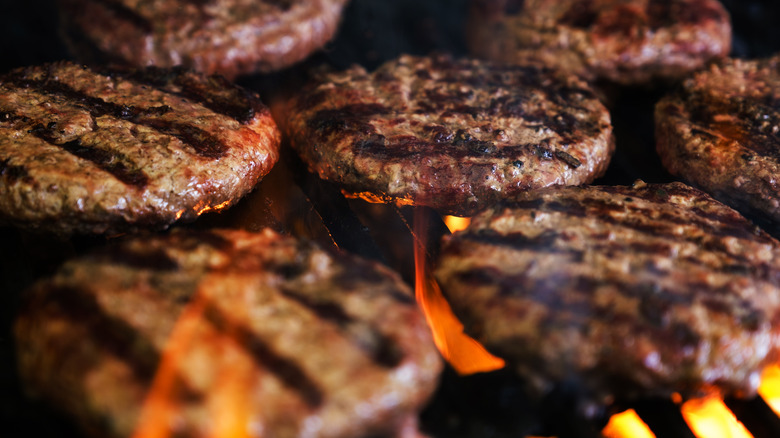The Unsettling Fact About How Many Cows It Takes To Make One Burger
How many cows does it take to make a burger? No, this isn't a fun riddle — it's a genuine question that doesn't have as clear of an answer as you might like. When you sink your teeth into a juicy quarter-pounder, you're probably not thinking about how many cows helped make it happen. Spoiler alert: It's more than one. In fact, that burger is likely the product of dozens of cows!
In the world of large-scale meat production, efficiency is the name of the game. Meatpackers blend beef from multiple cows because it's faster and cheaper than butchering and processing one cow at a time. This is the essence of factory farming. The reality is that one beef patty could contain meat from over 100 cows. Why do they do this? For starters, it helps streamline production and minimize waste — when you're dealing with such vast quantities, mixing different cuts from various cows ensures a uniform product that appeals to the masses.
Suddenly, that simple burger you're loading ketchup onto becomes a mix of many lives, combined in a way we rarely stop to consider. Makes you want to chew a little slower, huh? Knowing this fact might make some people reconsider the simple act of ordering a burger, especially when we think about the ethical and environmental implications of large-scale meat production. Either way, the next time you bite into your favorite burger, remember: It's not just about the beef; it's about the herd behind it.
The bigger, beefy picture
On average, one cow can yield about 500 or more pounds of meat, which can create around 2,000 burgers. So, while a single cow could technically supply a lifetime's worth of burgers, that's not how the commercial meat industry operates. The meat from multiple cows is mixed together in massive batches to create burgers, which is why your lunch might come from more than just one cow.
Buying from local farms offers a refreshing contrast to big meat corporations. For example, at Cross Creek Ranch, a pasture-raised ranch in North Carolina, they ensure that every burger comes from just one cow. They explained, "When people get beef from us, they are getting every part of that cow. No matter what type of cuts they choose, that one cow is all they're getting." This means that instead of a blend of beef from multiple animals, you're enjoying meat that reflects the entire lifecycle of a single cow, from birth to burger — a process that they say takes up to 20 months.
Local farms often operate with transparency that large producers don't. Cross Creek Ranch's pricing model is based on the cow's hanging weight, reflecting the actual meat from that specific animal. "Buying locally from a pasture-raised aspect means you know exactly where your beef comes from," they emphasize. While we can't speak for all small farms, many prioritize quality over quantity, ensuring one animal is used for your meat products. If you're keen on knowing the origins of your beef, explore your options!

